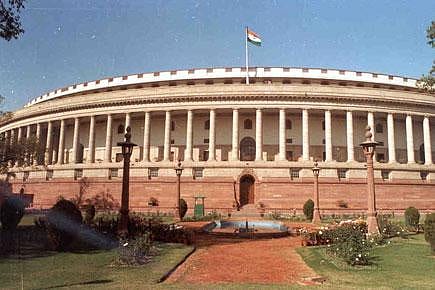The Workers’ Utopia

THE WHOLE OF this week Parliament remained stillborn with adjournments, and that comes as a surprise to no one at all. It is in keeping with the tradition of the august institution and the enthusiasm of its members to keep it functioning. And yet, there is a cost involved in keeping Parliament running and, if it does not, then that is taxpayer money doing the walkouts. There is an even worse consequence. A society's orderly survival is greased by periodical review of its conditions and updating laws to match them. If you don't do that, then essentially everything runs on the discretion of government servants or judges or whoever is in charge of interpreting those black holes. That is the reason every time Parliament is in session; there is a list of laws that have to be passed. They don't get passed if the House remains shut. As any weapon that is overused, disrupting Parliament has long lost utility. It is done because it is now a default response. Therefore, solutions are imperative.
One could punish the members by cutting salaries as a private company would do for employees taking leave without sanction. But no one comes to Parliament to make a salary. Most of them are obscenely rich and money is not the stick they fear. The only thing that a parliamentarian is petrified of is losing his seat, which is somewhat of an irony because he is refusing to go in anyway. Logically, if a day is lost, one would want to extend the tenure by a day to fulfil business, but here it is appropriate to do the reverse. For every day of adjournment, reduce the period of the current Parliament and even add a multiplier to it, like say five days' reduction for one day lost. For 20 days, that would mean the next elections advanced by three months. This makes every member who participates in shutting down Parliament have skin in the game. Even if he is forced to disrupt by orders of superiors, it will give him a powerful incentive to challenge such diktats within his party.
AIming High
20 Feb 2026 - Vol 04 | Issue 59
India joins the Artificial Intelligence revolution with gusto
A second solution is more straightforward. Attendance in Parliament is entirely a choice now. A member of Parliament could go for five years without a single appearance and then come right back in. Deny that. Bar a person from standing for re-election if he or she does not have a minimum attendance. Mark everyone absent for days when Parliament does not function in full.
These are unimplementable options. It will need the Constitution to be amended and the ones doing it will be the ones who stand to be scalded by it. Parliament is a worker's utopia. Once you are in, it is almost impossible to get fired. You decide your own wages and perks. You have no working hours. You can trash your workplace and then return the next day as if nothing happened. To ask to punish yourself for incompetence will be looked on as an absurdity. They will all agree on it, but then they will at least agree on something.
